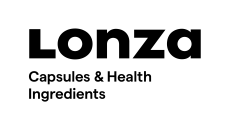Organic market stunted by undersupply, says consultancy firm
resulting in shelves remaining empty, companies withdrawing from
the market and others looking internationally to supplement supply
needs, says consultancy firm Organic Monitor.
The sectors hardest hit by supply shortages are the organic orange juice, meat and dairy sectors, according to the firm's director Amarjit Sahota.
Organic Monitor, which provides business research consulting on the global market for organic goods, identified that one leading organic orange juice producer is to withdraw from the market as it "cannot find enough orange juice to meet its growing production needs and has decided to focus on other product categories."
Sahota could not reveal the name of the company involved, but suspects that a public announcement will be made in the coming weeks, as production is likely to stop by early next year.
Organic Monitor predicted that the nation's refrigerated orange juice segment could contract by up to 20 percent in 2006 because of the company's market withdrawal.
Indeed, the recent hurricanes that hit Florida- the nation's primary citrus-producing region- have depleted orange juice stocks, and with imports being "prohibitively expensive," and producers unable to pass high price increases onto consumers, the market is suffering supply shortages for these products, said Organic Monitor.
"Many companies, such as Organic Valley, have already stopped producing organic grapefruit juice, because there is not enough supply. The same thing is happening now with orange juice," Sahota told FoodNavigator-USA.com.
According to Organic Monitor, the shortage of organic products is making producers look to other countries for raw materieals.
"Increasing volume of organic fruit, vegetables, grains, seeds, beans, and herbs are being imported into the US. Finished products are also imported to meet consumer demand for all things organic," said Organic Monitor.
"Scarcity of raw material is leading Stonyfield Farm, the dominant producer of organic yoghurt, to look at sourcing organic milk powder from New Zealand. The company is to send inspectors to New Zealand to ensure the organic milk meets American standards," it added.
According to the consultancy firm, the low number of organic livestock producers in the US has also resulted in the organic meat industry experiencing undersupply for a number of years, with American producers resorting to imported organic beef from Australia and Latin American countries.
Indeed, with consumers increasingly opting for 'healthier' products, the organic industry is set to enjoy good growth. According to a recent study by the nation's Organic Trade Association (OTA), by 2025 organic products will be considered "commonplace."
And the OTA's 2004 Manufacturers' Survey reveals that the organic foods industry reached $10.8 billion in 2003 and has grown at an average rate of 19.5 percent per year since 1997, while market researcher Euromonitor predicts that sales of packaged organic foods alone will be worth $8.6 billion at retail by 2009 - up from 5.1 billion in 2003.
A recent study commissioned by leading organic supermarket Whole Foods Market reveals that nearly two thirds of the nation's consumers have opted for organic goods in 2005, compared to just over half in both 2003 and 2004, an increase of almost 17 percent.
Yet according to Organic Monitor, a shortage of supply is stifling sales.
"Nearly all market sectors would grow at much higher rates if sufficient supply was available. For instance, lack of organic milk has caused many retailers to have empty shelves throughout the year."












